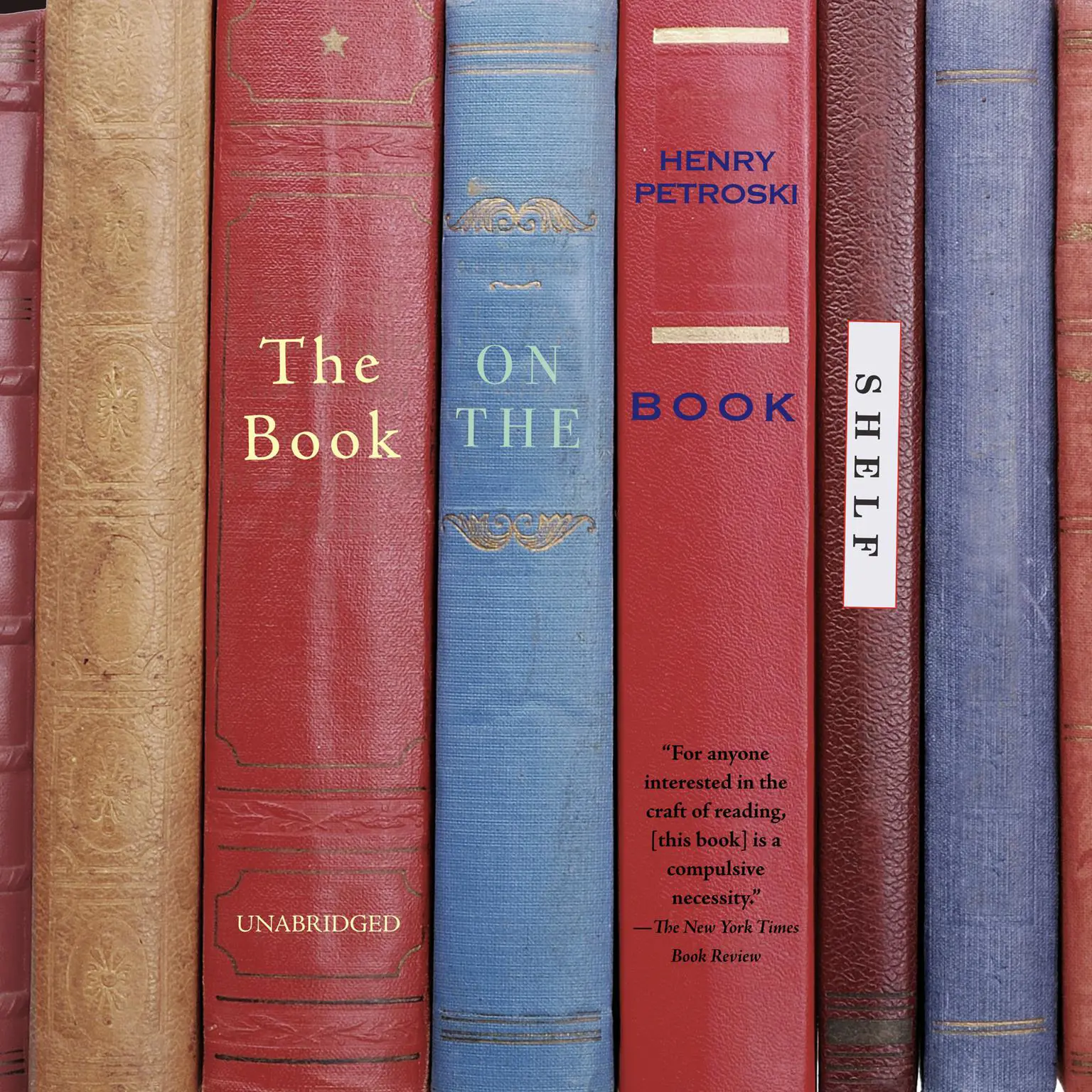 Play Audiobook Sample
Play Audiobook Sample
The Book on the Bookshelf Audiobook
 Play Audiobook Sample
Play Audiobook Sample
Quick Stats About this Audiobook
Total Audiobook Chapters:
Longest Chapter Length:
Shortest Chapter Length:
Average Chapter Length:
Audiobooks by this Author:
Publisher Description
From the author of the highly praised The Pencil and The Evolution of Useful Things comes another captivating history of the seemingly mundane: the book and its storage.
Most of us take for granted that our books are vertical on our shelves with the spines facing out, but Henry Petroski, inveterately curious engineer, didn’t. As a result, readers are guided along the astonishing evolution from papyrus scrolls boxed at Alexandria to upright books shelved at the Library of Congress.
Petroski takes us into the pre-Gutenberg world, when books were so scarce they were chained to lecterns for security. He explains how the printing press not only changed the way books were made and shelved but also increased their availability and transformed book readers into book owners and collectors.
In delightful digressions, Petroski lets Seneca have his say on “the evils of book collecting;” examines the famed collection of Samuel Pepys and his only three thousand titles—old discarded to make room for new; and discusses bookselling, book buying, and book collecting through the centuries.
This is the ultimate book on the book: how it came to be and how we have come to keep it.
Download and start listening now!
“Petroski includes delightful glimpses of noteworthy book collectors of the past and how they organized their books. Well written…this book is not just for bibliophiles. Highly recommended.”
— Library Journal
Quotes
-
“A fascinating history of two related common objects, impeccably documented.”
— Civilization -
“For anyone interested in the craft of reading, [this book] is a compulsive necessity.”
— New York Times Book Review -
“After reading this book, you will not look at a book or a bookshelf in the same way.”
— Seattle Times -
“Admirers of Petroski’s earlier works will not be surprised by his exquisite research, or by the gusto with which he plunges into the dustiest of library bins.”
— Publishers Weekly
The Book on the Bookshelf Listener Reviews
Be the first to write a review about this audiobook!
About Henry Petroski
Henry Petroski (1942–2023) wrote twenty nonfiction books detailing the industrial design history of common, everyday objects, such as pencils, paper clips, toothpicks, and books and bookshelves. His first book was made into the film When Engineering Fails. He was a professor emeritus at Duke University and a frequent lecturer and a columnist for the magazines American Scientist and Prism.
About the Narrators
John Lescault, a native of Massachusetts, is a graduate of the Catholic University of America. He lives in Washington, DC, where he works in theater.
John Lescault, a native of Massachusetts, is a graduate of the Catholic University of America. He lives in Washington, DC, where he works in theater.





